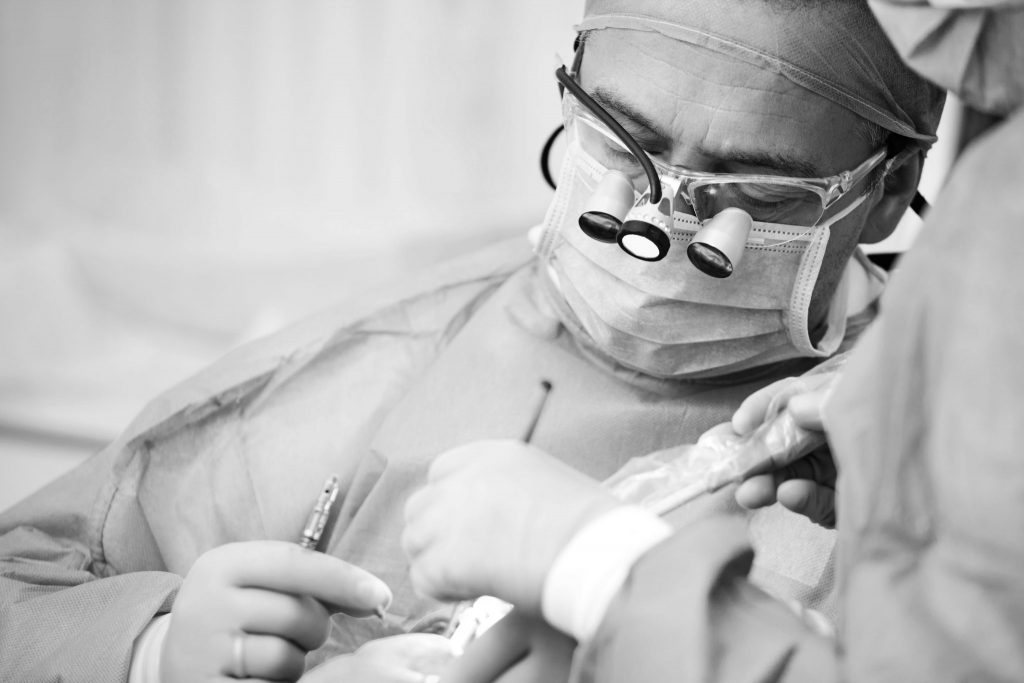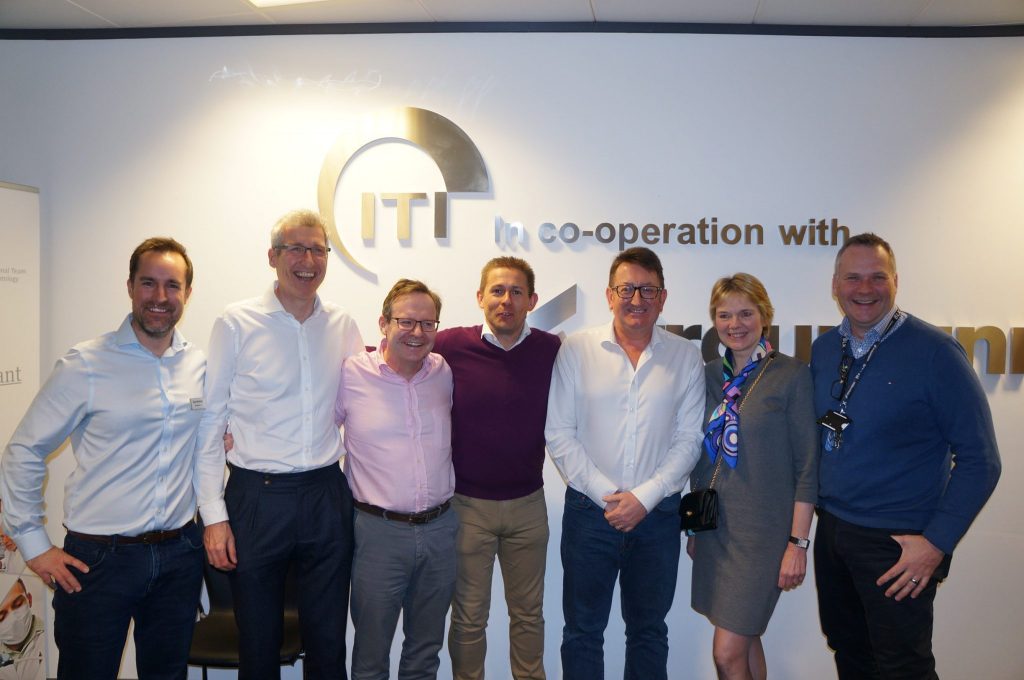A truly unique implant training opportunity
Featured Products Promotional FeaturesPosted by: Dental Design 23rd April 2020

The Foundation in Implant Dentistry (FID) presented by the International Team for Implantology (ITI) is a highly coveted training course for clinicians in the UK. It offers blended learning implant education for those who wish to get involved in the field without a long-term commitment straightaway.
At the recent launch of the 2020 cohort, Course Director, Eoin O’Sullivan, highlighted what he feels make the course stand out from others:
“The FID is clinicians’ first step on their journey into dental implantology. The course itself is a very structured programme that is based on science and is supported by a very experienced training faculty. We have gone to great lengths to ensure that the FID course is a highly relatable programme and is accessible to dentists from all kinds of backgrounds.”
Logical, patient-centred approach
Charlotte Stilwell, ITI President-Elect and therefore soon to be the first female President of the organisation, was keen to show how the teaching offers a practical and patient-centred approach to the field. Having founded the FID 10 years ago, her continued involvement has provided a unique level of continuity and drive. She said:
“The first module looks at a case presentation and discusses all possible treatment options before exploring implants within this patient focused context. It’s about providing treatment in the best interests of patients from the very beginning. The programme is structured in the same way to ensure delegates approach each situation just as they would in practice. This ensures the practicality of the course, allowing delegates to easily apply what they learn to everyday clinical scenarios. This also keeps patients at the heart of everything clinicians do to optimise the patient journey.

“We have worked hard to keep the programme relevant to the clinician,” she commented. “It teaches exactly what dentists need to know, at the foundation level of implant dentistry. The ITI SAC Classification categorisation of implant cases into ‘straightforward’, ‘advanced’ and ‘complex’ greatly assists with this. It is a clear learning outcome of the first module of the FID that the participating clinicians learn to use this globally accepted and adopted Classification to distinguish between cases in each group. After this, the programme focuses on ‘straightforward’ cases to ensure delegates progress within their remit.”
Mentoring
Mentoring is another huge aspect of the programme and for good reason, as Ross Cutts, ITI Fellow and course speaker, went on to highlight:
“The aim of the course is to teach clinicians to provide safe, predictable and effective implant treatment. The mentoring programme is therefore crucial – you don’t know what you don’t know and only a more experienced dentist can highlight any potential issues before they occur.”
As Charlotte describes, they strive to ensure the quality of mentorship with ITI recommended criteria:
“We defined the mentoring criteria for the FID from the outset to ensure that delegates work with mentors who have the appropriate knowledge, expertise and experience. Delegates have access to the ITI register of mentors, or they can work with other colleagues they know to meet the criteria we have recommended to ensure quality of the mentorship they receive.”
Introducing digital dentistry
Over the past ten years, the evidence-based focus of the FID has remained constant, but the programme has been enhanced and added to remain relevant.
“Although the fundamentals don’t change, the course has gradually evolved over time,” commented Eoin. “For this year we have added a digital module in order to offer training beyond the foundation level. It extends the learning experience for delegates to include didactic teaching that caters up to an intermediate level of the ITI Curriculum. I feel that digital is becoming an everyday part of the implant workflow. It is therefore now important to include within the FID course.”
Ross reiterated the benefits of digital dentistry, especially for clinicians learning initial skills in implantology:
“I believe digital dentistry makes dental implant procedures more predictable with less operator error, especially for less experienced dentists. Once the digital techniques and technologies are mastered, dentists can greatly improve their clinical outcomes.”

A community and extensive resource
All delegates on the course are also introduced to the ITI community of more than 21,000 members and the enormous evidence base that the ITI adheres to. As such, they have access to comprehensive resource to support their learning. Colin Burns, ITI Fellow and a speaker on the course explained:
“There are no other courses with access to a unique resource like the ITI’s, which includes its own Academy and curriculum. The problem with some implant training is that it is over-complicated. Clinicians need to develop from a solid foundation of knowledge. The FID and ITI community facilitate this.”
Ross added:
“The best aspect of the ITI for me, is the sense of family and belonging you get as a member. Everyone is very welcoming and inclusive.”
Industry support
Straumann is proud to have worked with the ITI for several decades and to continue supporting the FID today. About the relationship, Colin said:
“Educational courses of a certain calibre can only exist today with commercial support. However, it’s important for education to retain independence from commercial influence to avoid any bias and maintain its integrity. We have had a strong relationship with Straumann for the last 40 years. We believe in the way that Straumann products support the FID, which is why we choose to use and teach them.”
Charlotte added:
“Our relationship with Straumann today provides the ideal partnership between industry and a scientifically independent global academic organisation. The company satisfies our criteria for evidence-based products, which we utilise to demonstrate all implant solutions we use and teach.”
A valuable stepping stone
The FID provides a stepping stone into further postgraduate education – it is a recognised credit towards an MSc in implant dentistry or enables delegates to progress through the ITI education pathway. Colin summarised the course eloquently:
“For me, the key features of the FID are that it provides an engaging and structured programme with flexibility to suit clinicians that have other professional or personal commitments.”
Charlotte added:
“This course does what it says it’s going to do. It provides an excellent start into implant dentistry with a comprehensive, controlled and yet not overwhelming programme. In addition, it is backed by the national and global ITI network and wealth of educational resources, providing further opportunity for individuals to support their way onwards in dental implantology.”
For more information about the FID and future cohorts, please visit www.skill.straumann.com/en-GB/Home








